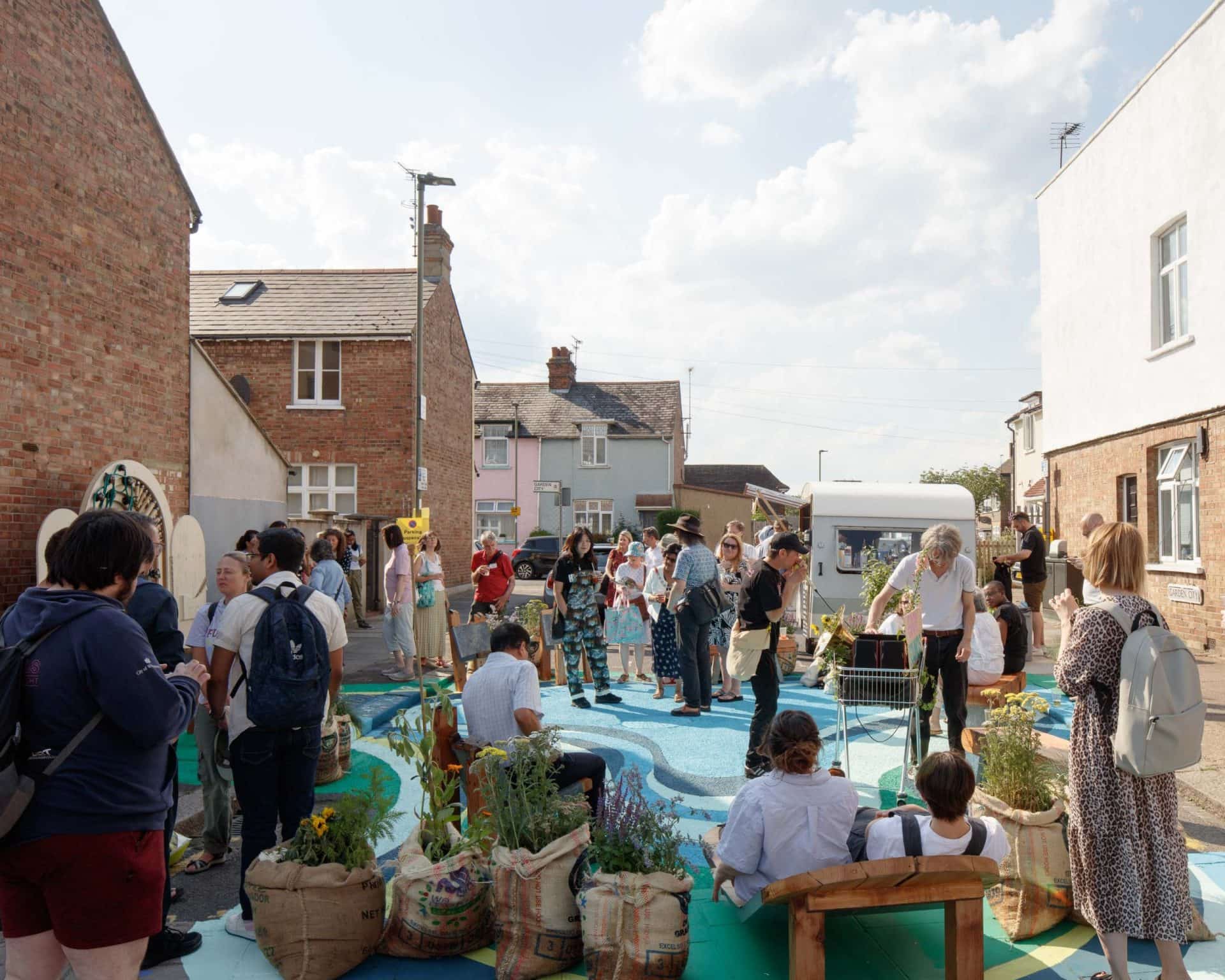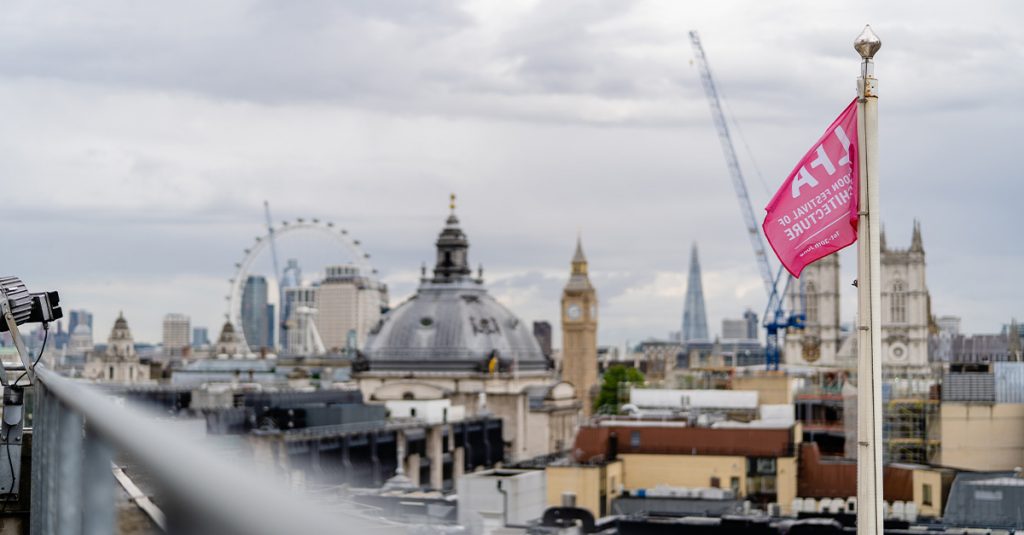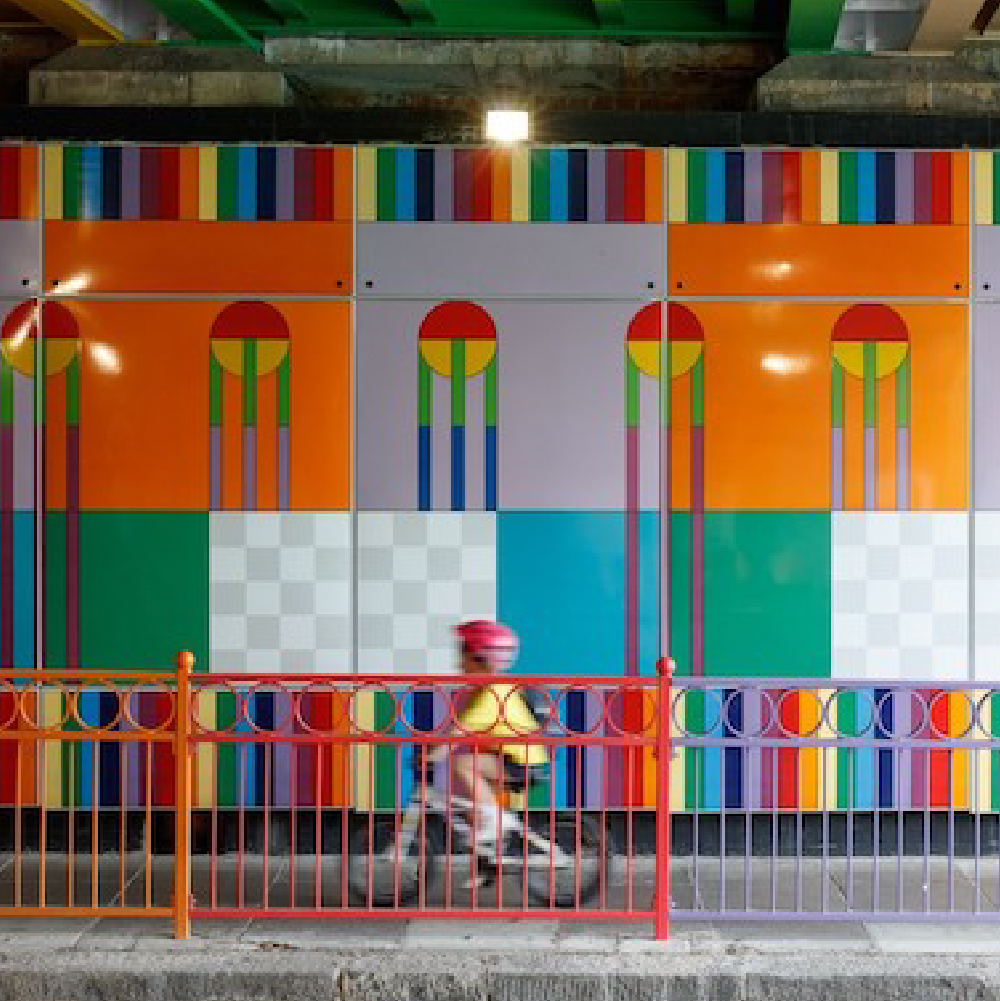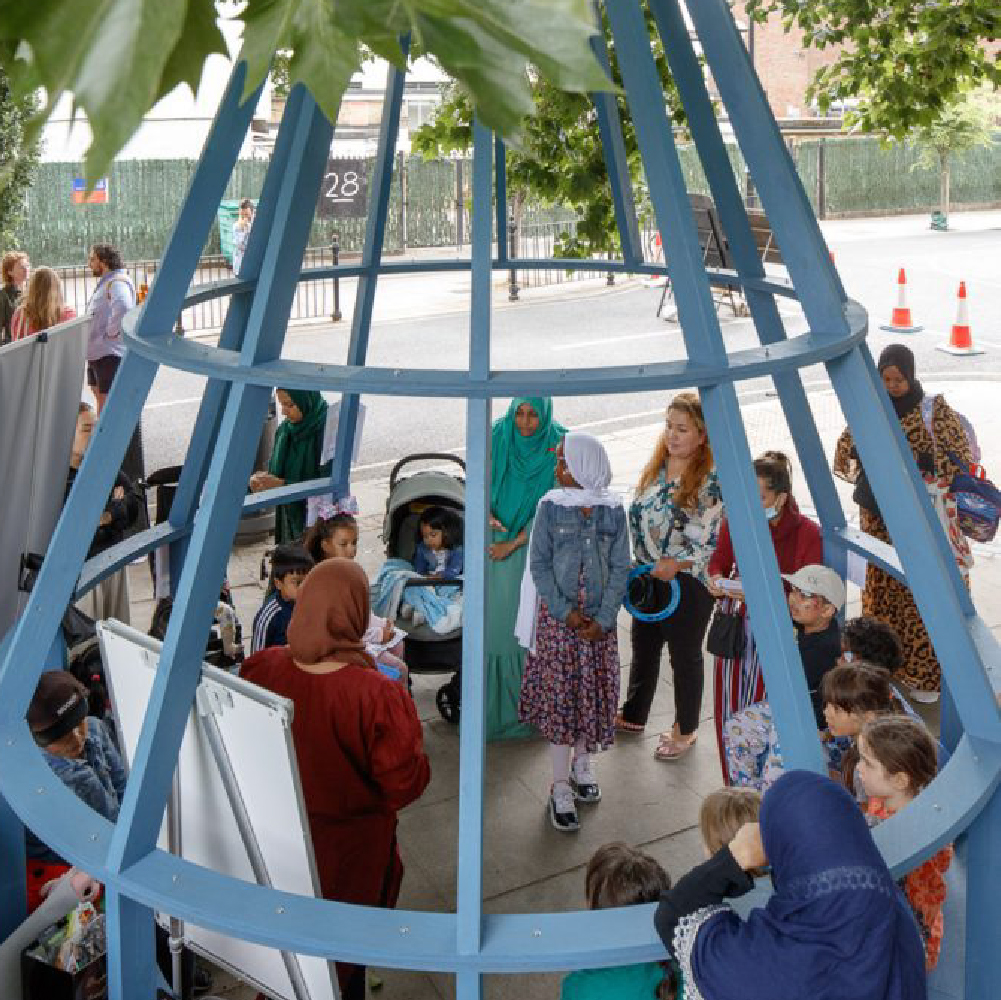Back in 2008 young architect Anthony Lau won first prize in a design competition organised as part of the LFA called ‘Reinventing the Bikeshed’. Anthony’s design of the cyclehoop, which increased the bike parking capacity of lampposts, formed the foundation of his very successful company which to date has installed over 2,000 cyclehoops on streets all over the world providing 4,000 cycle parking spaces. The company also makes bike hangars which can be seen in streets across the capital.
In 2021, to return the favour, Anthony has agreed to help the winner of the Caring for Cyclists light protection design competition to prototype their proposals and bring them to market. The competition responds to the theme of ‘Care’ by seeking innovative ideas for light separation infrastructure to protect cyclists on busy roads.

In recent years, and accelerated by COVID19, light segregation has become increasingly ubiquitous – London alone has installed some 100km of bike lanes in the capital as part of the Mayor’s Streetspace programme. However, the proliferation of plastic wands and barriers has done little to enhance streetscapes; after two decades of attempts to declutter public areas, we are filling them again with new and essential infrastructure. How do we design such protection in a way that puts safety first but responds to the context of the urban environment? Can we find more beautiful options? Light segregation combines the benefits of cost, speed of delivery and adaptability.
In the same year that Anthony won the LFA competition, artist, musician and cyclist David Byrne of Talking Heads designed a range of innovative bike parking racks for the streets of New York. There was a rack shaped in a dollar sign for Wall Street, a red high-heeled shoe for outside the Bergdorf Goodman department store on Fifth Avenue and a coffee cup for the Upper West Side near the Hungarian Pastry Shop.
Byrne will head up the judging of the design competition, supported by TV presenter Jeremy Vine who has long been campaigning for safer cycling infrastructure in London. Another judge is Will Norman, the Cycling and Walking Commissioner for London who says “This past year we’ve built a huge amount of new cycling infrastructure, much of which has used cheap and cheerful plastic wands. Wands are fantastic, but not everyone likes them as much as I do, and some of the products we use are also not built to last. As London starts moving again, we need to continue to work quickly to change our streets to enable more Londoners to cycle, and I hope the winner of this competition can be part of this next exciting chapter.”
I look forward to seeing the winning designs rolled out across London as we recover from the pandemic and deliver healthier, safer and more beautiful streets.
Since the start of the pandemic the Streetspace project has delivered over 100km of new or upgraded cycle routes. Many of these are delineated by temporary plastic wands or barriers. While these are doing a great shop of protecting cyclists in the short term, London needs a more elegant solution to light protection for cyclists.
Care for Cyclists is a competition open to designers, architects, cyclists around the world to come up with designs that enhance rather than detract from the experience of using our streets.
Organised by the Construction Industry Cycling Commission, the aim is that the winning scheme will be prototyped for testing and, if successful, manufactured. Chief technical advisor is Brian Deegan.
To download the brief and to find out how to submit your design, head here.
Please note, this is not an LFA competition.










